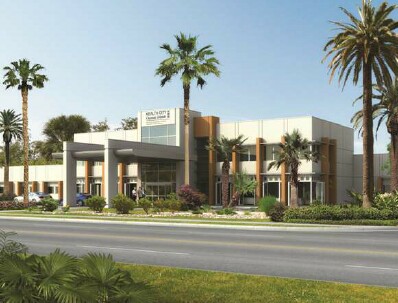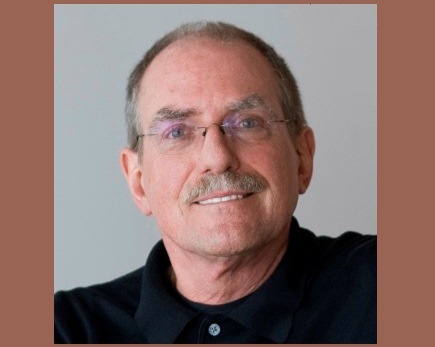The New Health Age of Hospitals has Begun!

In my last column I wrote about the grand opening of Health City Cayman Islands. The grand opening of HCCI at the end of February ushered in a new era of hospitals in this century. Since then HCCI has opened its doors and is performing surgery on its first patients. It is starting to deliver on the promise of compassionate, lower cost, higher quality health care for humanity.
In that last column I wrote about HCCI and the visionary behind it, Dr. Devi Shetty. In this column I want to take a look at some of the simple yet profound innovations that put HCCI at the leading edge of hospitals in the world.
HCCI was built for one third the cost of a hospital in the U.S. on a cost per bed basis. Of course much of this cost differential is due to significantly greater regulations and governmental oversight in the U.S. However, what one sees at HCCI is a commitment to functional simplicity with the entire focus on efficient patient care through put and high quality/low cost outcomes. The lobby to the entire hospital is simple and pleasant. When walking through it, all I could think about were two major hospitals in the Chicago area. One has a drive through drop-off entrance with complex neon sculptures and valet parking. The other has a three-story atrium entrance with a two story cascading waterfall with a baby grand piano that someone plays. Is this a hospital or a Four Seasons hotel? We wonder why our hospital bills so high.
HCCI was built with state of the art modular construction ideas with a total focus on being energy efficient, sustainable and maintaining a zero carbon footprint. There are big windows looking out on beautiful tropical landscapes. Even the operating rooms have large picture windows. When I asked Dr. Shetty why an operating room had a picture window, his answer was simple and direct. He spoke about how natural light in a workplace helps keep creativity at high levels. Given that his surgeons do 5 or more operations a day, they need to stay fresh and creative through the day.
The intensive care unit is one big room with a number of beds so that fewer staff can keep an eye on and monitor a greater number of patients. There is a high window over each bed so that in recovery the patient has natural light and can see the Caribbean sky. At the end of each bed is a holder for a tablet. When being admitted to the hospital, the patient is given an inexpensive tablet that is then loaded with all necessary patient records. That tablet stays with the patient through recovery and until they leave the hospital complex. At each patient touch point, the doctor or staff person makes an entry. Everything about that patient is both on that tablet and in a central control room where all data from the tablets is being monitored. One of the goals is to attempt to eliminate any lag time between a patient event and the response from the staff. This system is called the iKare system and its creation and implementation is being led by Silicon Valley veteran Samir Mitra.
Dr. Shetty has been called the “Henry Ford of health care” because he is basically lowering costs by increasing volume of output. He is bringing scale to what is still a largely “craft business” in the U.S. Volume of patient through put not just increases efficiency, but it drives the ability to negotiate better pricing on just about anything that goes into a hospital. This means that Dr. Shetty will not only deliver the same if not significantly better medical outcomes for patients than most U.S. hospitals, his team will do so at less than half the cost of identical procedures in the U.S. So, one can have a better health outcome at a fraction of the cost and only an hour away from Florida.
HCCI has a room entirely filled with one large machine. This machine converts ambient oxygen from the air into high quality hospital oxygen, which is usually very expensive. This dramatically lowers the cost of oxygen for the hospital. Interestingly, the company that makes this sizable machine is based in the U.S. but has yet to take an order from any U.S. health care providers.
In my last column I mentioned that the health care panel at the grand opening of HCCI, at which I was honored to provide closing remarks, was chaired by Dr. Robert Pearl, the CEO of Permanente Medical group. Dr. Pearl is also a weekly columnist for Forbes and he has written two expansive columns about HCCI and Dr. Shetty that provide deeper insights into this New Health Age.
The technologies, the total sustainable vision of construction and operation, the functional intelligence of operation, the deep compassion and the commitment to high quality care at the lowest possible cost make HCCI the vision of the future of hospital health care in the U.S. and around the world.
David Houle is a futurist, strategist and speaker. He has always been slightly ahead of the curve. Houle spent more than 20 years in media and entertainment. Most recently, David is a featured contributor to Oprah.com. Check him out here www.oprah.com/davidhoule. David can be contacted at David@DavidHoule.com.
Houle spent more than 20 years in media and entertainment. Most recently, David is a featured contributor to Oprah.com. Check him out here www.oprah.com/davidhoule. David can be contacted at David@DavidHoule.com.
Read all David’s MediaBizBloggers commentaries at Evolution Shift.
Check us out on Facebook at MediaBizBloggers.com
Follow our Twitter updates at @MediaBizBlogger
The opinions and points of view expressed in this commentary are exclusively the views of the author and do not necessarily represent the views of MediaBizBloggers.com management or associated bloggers. MediaBizBloggers is an open thought leadership platform and readers may share their comments and opinions in response to all commentaries.


